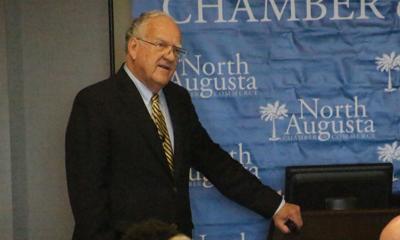New Biden administration tariffs on Russian aluminum and limits on scores of other metals, minerals and chemical products partly took effect last month, adding significantly to existing sanctions placed on Russia since the Ukraine invasion. While no tears will be shed for Vladimir Putin’s regime here, there’s a domestic side to this story that should not go ignored.
After all, higher tariffs are ultimately paid by U.S. consumers, and inflation worries are already a matter of deep concern.
The tariffs may or may not punish Russia, but they’ll certainly assist U.S. aluminum producers. The industry has enjoyed special treatment since at least 2018, when then-President Donald Trump raised tariffs on aluminum and iron. Once again, we have an example of how moral suasion — doing the right thing in times of trouble — helps line the pockets of special interest groups that might have trouble getting federal assistance alone.
The Bootlegger-Baptist theory of regulation is based on a familiar story for some of us:
In our part of the world, both bootleggers and Baptists have traditionally favored shutting down legitimate sellers of booze on Sundays. These laws appeal to locals who seek a more moral society, while providing a politically protected market for canny bootleggers who want to limit the legitimate sale of alcoholic beverages.
Parallels can be found wherever the public is focused on the right and wrong of an issue and a relative few see an opportunity to earn some extra bucks. The theory doesn’t question the logic or necessity of a policy. It’s rather about a convenient rhetoric that enables politicians to justify their favors to important interest groups. In this instance, we might speculate that President Joe Biden has promised a lot to unions.
Consider that the Department of Commerce cited a national defense justification for the tariffs (similar to that used by Trump when referring to Chinese adversaries), while adding the politics-as-usual notion that the action would help American workers:
"President Biden has made it a priority to mitigate the effects of Russia’s invasion on domestic industries critical to our national security, and this includes the American aluminum industry. In imposing these tariffs, we are denying Russia an important market for its aluminum while taking a stand for America’s workers."
The protected industry seemed happy. One producer "welcomes the imposition of tariffs by the U.S. government on Russian aluminum," and continues “to advocate for sanctions as the most effective means for the government to take action against Russia and level the playing field for U.S. producers."
Of course, consumers pay the higher prices, and the trouble is that they will not be heard from. They are going about their lives, quite reasonably ignorant about what happens in the cracks and crevasses of government. And unlike unions, they are unorganized, making this a classic case of concentrated benefits and dispersed costs. Those who gain darn well know it; those who share the costs hardly realize what’s going on.
Even with constant attention on inflation and whether the Federal Reserve will bring meaningful relief, it’s interesting that our elected leaders seem unwilling to connect the dots linking politically popular tariffs to higher consumer prices.
Back in early 2016 — prior to COVID, Ukraine and the inflation spike — the tariffs imposed on and ultimately paid for by the U.S. population, called custom duties and taxes on production, totaled $38.8 billion a year. As of 2022’s fourth quarter, the total was $93.2 billion. It’s not chicken feed.
The proverbial bootleggers — good businesspeople and patriots, one need not doubt — know what’s going on. But don’t you think it’s time for an annual report card to the people? One tallying the tariffs we pay and which industries are receiving protection? Isn’t it time we put a spotlight on the bootleggers as well as the Baptists?
Bruce Yandle is a distinguished adjunct fellow with the Mercatus Center at George Mason University and dean emeritus of the Clemson College of Business and Behavioral Sciences.

